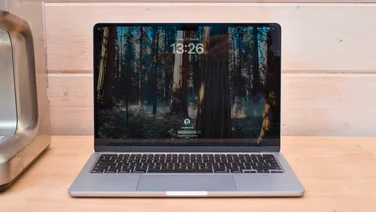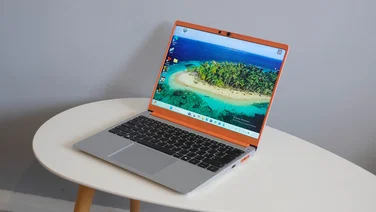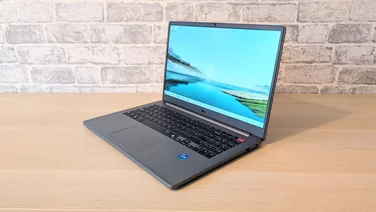To help us provide you with free impartial advice, we may earn a commission if you buy through links on our site. Learn more

There are so many things to consider when you’re shopping for a brand-new laptop. Everyone wants to find a well-priced machine with that perfect balance of build quality, performance and battery life. And then there’s the display to think about: do you want a standard screen or a touchscreen, and at what resolution? Storage quality and connectivity matter, of course, as does the operating system.
It’s not easy to say which of the above is the most important because, actually, they’re all important. If you don’t have decent performance, however, no laptop can really make the grade. No matter how pretty that snazzy 4K touch display might be or how thin, light and shiny the chassis, you’ll soon regret the purchase if it can’t perform the daily tasks you set it without slowing you down. That’s where this guide comes in.
READ NEXT: Best laptops of the year
Here at Expert Reviews, we use an exhaustive suite of benchmarks on every laptop we review, measuring everything from display quality and battery life to storage and gaming capabilities. The first thing we do, though, is test performance. Having tested the CPU performance of hundreds of laptops we’ve sorted through the results to reveal the twenty fastest laptops you can buy today. Read on to find out what they are and how they were tested.
Fastest laptop: How we test
To test the speed of a laptop, we use an in-house application called Bench. We created Bench as a means of testing overall performance; unlike GeekBench 4, which solely measures CPU speed, Bench involves the whole system. In a way, it’s more of a stress test than a processor speed test.
Essentially, the application forces the laptop to run complex processing tasks on 4K image and video files, then runs it through some multitasking tests. This combination of tasks is designed to put the CPU through its paces, but it also challenges the laptop’s GPU (whether integrated or dedicated), along with its memory, storage and thermal management systems.
When Bench has run its course, it produces three results: an image score, a video score and a multitasking score, represented in seconds. Fewer seconds is better because it means that the laptop completed the test faster.
Next, we take those three results and calculate a final score. The quicker the laptop finishes the Bench test, the higher that overall result will be. This calculation is based on a reference score of 100, which was achieved by a laptop using an Intel Core i5-4670K that we tested when Bench was first created. Unlike the seconds scores of the individual tests, where less is more, a higher number is better when it comes to the overall Bench result.
Before running Bench, we ensure the laptop is plugged into a power source, then set it to its highest possible performance mode. In Windows 10 laptops, this can be done from the taskbar by clicking on the battery symbol and moving the power mode slider to “Best performance”. A laptop’s power settings can be more finely tuned in the “Power Options” section of the control panel. We also close all other applications and disable Wi-Fi for the duration of the test.

Gaming laptops with dedicated graphics often come installed with a custom control panel. Take Alienware, which installs the Alienware Command Center app to give the user additional control over hardware settings, from CPU and GPU performance to fan speed. In some cases, it’s even possible to overclock a laptop’s CPU beyond its turbo frequency, although this doesn’t necessarily guarantee an improved Bench result as it can create too much heat and cause thermal throttling, where an overcooked CPU turns the speed down to reduce the temperature.
Fastest laptop: Results
First, a disclaimer. The results chart below shows the CPU models alongside the name of each laptop and, in general, it’s true that the most powerful processors achieve the best results in our Bench test. The CPU isn’t everything, though. As mentioned previously, the score is also affected by a laptop’s RAM and GPU, while the efficiency of its cooling system plays a huge role, too.
Out of necessity, the chart can’t show all of this information – it would be too crowded. So, before leaping to buy a laptop based on its Bench result, remember that the other specs are also important. We have full reviews of all the laptops in the chart and you can have a look at those to find out the exact configurations we tested.
And now onto the top twenty chart. You’ll immediately notice that there’s a gigantic gap in performance between the top two entries. Why is there such a big difference?
Well, put simply, the Alienware Area-51m is an absolute beast. This £4,000 gaming laptop uses a 9th-Gen Intel Core i9-9900K (up to 5GHz) CPU, 32GB of RAM and an Nvidia GeForce RTX 2080 GPU to achieve results that rival high-end desktop gaming PCs. Its dual power supply units feed it with a whopping 510W, while its clever cooling system keeps the internal temperature in check. Its Bench score of 310 makes it by far the fastest laptop we’ve ever tested and we don’t expect it to be beaten any time soon.

^ Click to expand
Coming in a not-very-close second is the Acer Predator Helios 500 with a score of 215. That’s still staggeringly speedy and, when we reviewed it in late 2018, it was the fastest laptop we’d seen. We named it the Best Gaming Laptop at the Expert Reviews Product of the Year Awards 2019 in recognition of its incredible power and gaming prowess – and, at £2,200, it’s way more affordable than the Area-51m. Bronze goes to the Asus ROG Strix Scar III, which ploughed through our Bench test to reach an impressive score of 210.
Looking at the next four laptops, an obvious trend emerges. Like the three above, they’re all gaming-oriented laptops that have a high-powered CPU, a large amount of RAM (16GB or above) and a dedicated graphics card. Laptops built with gaming in mind are, by their nature, extremely fast and make excellent workstations, as well as coming in handy for a spot of PUBG.
On the other hand, these overpowered laptops have notoriously short battery lives and tend to be really heavy, which makes them much less portable than a more traditional model.
READ NEXT: Best laptop battery life: Which laptops go the distance?
But do you need a gaming laptop for fast performance? Absolutely not. Coming in at a commendable eighth place is the Dell XPS 15 (2018). Powered by an 8th-Gen Intel Core i7-8750H, it achieved an overall Bench score of 178. That’s a brilliant result and makes the XPS 15 the fastest non-gaming laptop we’ve had the privilege to test. It even marginally beats the Razer Blade 15 (2019), a speedy and well-rounded gaming machine that managed 174 in our in-house Bench test.
You’ll spot a few Apple products in this illustrious list of the fastest laptops. And if you’re after the most powerful Apple machine possible, you’ll want to buy the 15in MacBook Pro (2018), which runs on an Intel Core i9-8950HK and clocked a score of 173. The 2018 13in MacBook Pro is a fair bit further down the list with a score of 150. However, that’s still faster than the 2017 15in MacBook Pro.
READ NEXT: Best gaming laptops
All twenty laptops in this list came out recently, within the last couple of years, which is irrefutable evidence of the staggering progress of computing technology. Case in point is the Acer Predator 21X from late 2017. Back when it launched (at the outrageous price of £9,000), it was among the most powerful laptops we’d come across. Its score of 128, at the time impressive, now seems laughable in comparison to the top performers in 2019.






